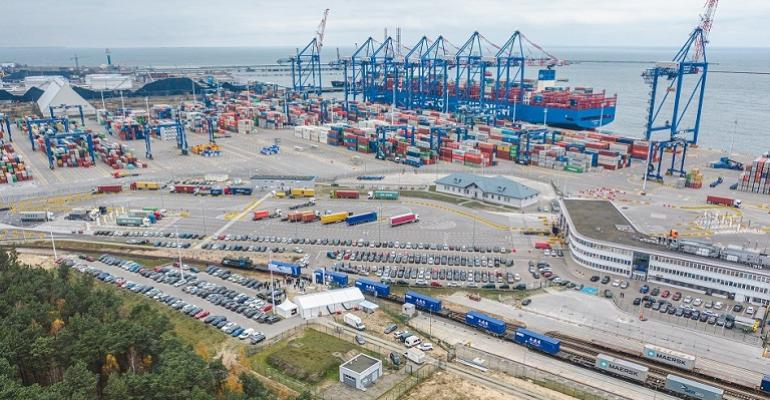The new cargo train service, known as ‘The Baltic Train’, will cut typical transit times between China and Gdansk from 40-45 days by sea to just 10-12 days and, it is claimed, will provide a short-cut to markets in the UK and Scandinavia, with a three-to-five day time saving compared with the Port of Hamburg.
Likely to generate a range of new feeder services in line with the Port of Gdansk’s aim to become the ‘gateway to the Baltic’, The Baltic Train is a result of cooperation between the port, Polish transport and logistics firm Adampol, and DCT Gdansk, Poland’s largest container terminal acquired by PSA International, the Polish Development Fund and the IFM Global Infrastructure Fund earlier this year.
The Polish companies are already seeing growing interest from shippers at both ends of the rail link who are noting the shorter delivery times to key markets.

Lukasz Greinke, president of the Port of Gdansk’s Management Board noted that the new ECT connection would open up new trading opportunities between China and Poland, Scandinavia and the UK through feeder services operating from Gdansk. He said that the new service now offers an alternative to ports in Western Europe, with significantly reduced transit times.
“We see this as a chance to use our highly-developed connection network and infrastructure … we are able to accelerate the transport of goods from China by up to five days. It also involves fewer operations on the container which results in lower costs. From now on, the Port of Gdansk can offer a faster, better value and more competitive service,” Greinke declared.
Adampol will manage the ECT-Gdansk rail service which will become weekly from January 2020, following the arrival in Gdansk of a second train from China in December. Adampol operates a major transhipment hub in Malaszewicze on the Polish-Belarusian border where up to 19 trains a day are processed from Chinese cities including Changsha, Chengdu, Chonqging, Harbin, Hefei, Wuhan, Xi’an and Zhenghzou.
Copyright © 2024. All rights reserved. Seatrade, a trading name of Informa Markets (UK) Limited.
Add Seatrade Maritime News to your Google News feed.  |

